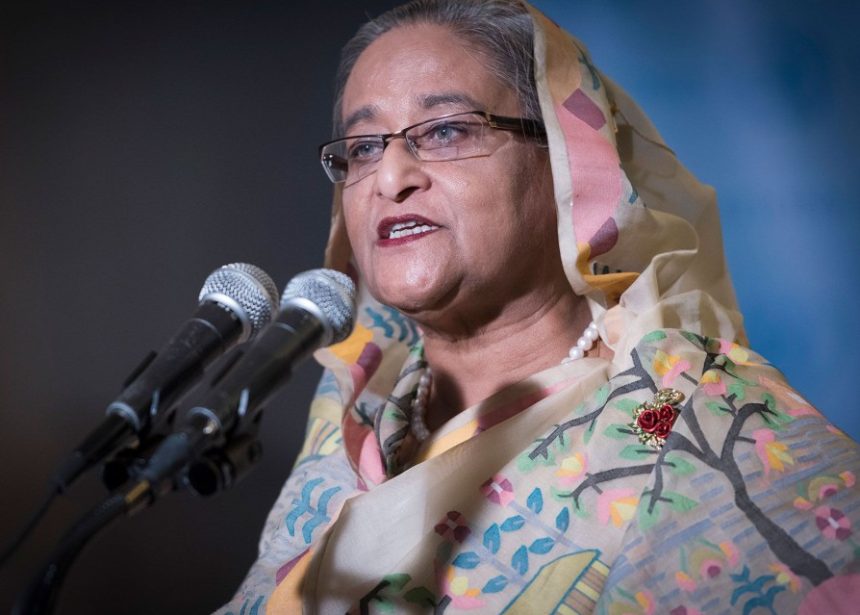In a dramatic and largely consequential ruling, Sheikh Hasina, the former Prime Minister of Bangladesh, has been sentenced to death in absentia by the country’s International Crimes Tribunal( ICT) for crimes against humanity.
The verdict stems from her alleged part in a brutal crackdown on pupil- led demurrers in 2024 – 2025, a violent occasion that left as many as 1,400 people dead.
What Led to the Tribunal Case?
Last August, Bangladesh was rocked by mass pupil protests. What began as demonstrations over public sector job proportions escalated into a civil insurrection.
Security forces reportedly used drones, helicopters, and lethal weapons to suppress demonstrators, and the tribunal’s judgment supports that account.
Justice Mohammad Ghulam Murtaza Majumdar, one of the judges on the ICT bench, stated bluntly: “It is clear enough that the attack in question was directed against [the] civilian population, and it was widespread and systematic … accused prime minister Sheikh Hasina committed crimes against humanity by her incitement, direct order and also failure to take preventive measures … It’s crystal clear she incited the violence … attacked with deadly weapons.”
Sheikh Hasina found guilty by #Bangladesh tribunal
Bangladesh’s tribunal says Sheikh Hasina deserves maximum punishment for crimes against humanity during last year’s uprising
Hasina who fled to Delhi after her government collapsed, has called the charges false,… pic.twitter.com/FZJQBpS9Dy
— Nabila Jamal (@nabilajamal_) November 17, 2025
The court also referred to transcripts of phone conversations in which Hasina allegedly instructed officials to deploy helicopters, drones, and firearms.
Hasina’s Reaction
From her self-imposed exile in India, Hasina has strongly condemned the verdict. She claims the tribunal is rigged, calling it “politically motivated” and lacking democratic legitimacy: “The verdicts announced against me have been made by a rigged tribunal … with no democratic mandate …
They are biased and politically motivated … In their distasteful call for the death penalty, they reveal the brazen and murderous intent … to remove Bangladesh’s last elected prime minister.”
She has so far refused to return to Dhaka to face the sentence.
Political and Personal Stakes
This case carries not just legal but major political ramifications. Hasina is no ordinary figure; she preliminarily served as Prime Minister for over 15 times.
Her conviction sends shockwaves through Bangladeshi politics, particularly given that she remains a deeply polarising figure.
Interestingly, she’s also the aunt of UK Labour MP Tulip Siddiq, adding a transnational dimension to the story that resonates with British compendiums.
Evidence Presented by the Tribunal
Prosecutors at the ICT highlighted a raft of evidence, including:
- Leaked phone recordings, in which Hasina allegedly instructed officials to carry out lethal attacks.
- Witness testimonies describing a “systematic attack” on the protesters.
- Documentation of drone and helicopter deployments used during the crackdown.
Moreover, Chowdhury Abdullah al‑Mamun, the former police chief, admitted in court that he followed his orders — claiming Hasina explicitly directed the use of helicopters, drones, and firearms to attack protesters.
Legal Charges and Sentencing
Hasina was formally charged on multiple counts, including assault, incitement, conspiracy, facilitation, conspiracy, and failure to help with mass murder, all relating to the demurrers.
The bench set up her shamefaced on several heinous charges and called for “ maximum punishment. ” In the final judgment, Hasina was doomed to death, while some of her co-indicted entered captivity terms.
Broader Implications and Reactions
- Human rights observers have described the verdict as a watershed moment for justice in Bangladesh. It marks one of the most serious uses of ICT since its inception.
- On the other side, supporters of Hasina view the trial as a vendetta, asserting that the tribunal lacks independence and is an instrument of political retribution.
- The interim government, which came to power after Hasina fled, argues that this judicial process is vital to restore accountability and public trust.
Given Hasina’s refusal to return, it’s unclear how her sentence will be carried out. Legal analysts suggest she may appeal, but her absence complicates any enforcement.
Meanwhile, political tensions in Bangladesh are rising sharply. The tribunal’s decision may deepen existing divides and set the stage for a volatile future.






